America: A Cold Game review
America: A Cold Game
WORK/PLAY
2023
Perfect-bound softcover
180 pages
5 x 7.25 in
Digital Printing
Edition of 200
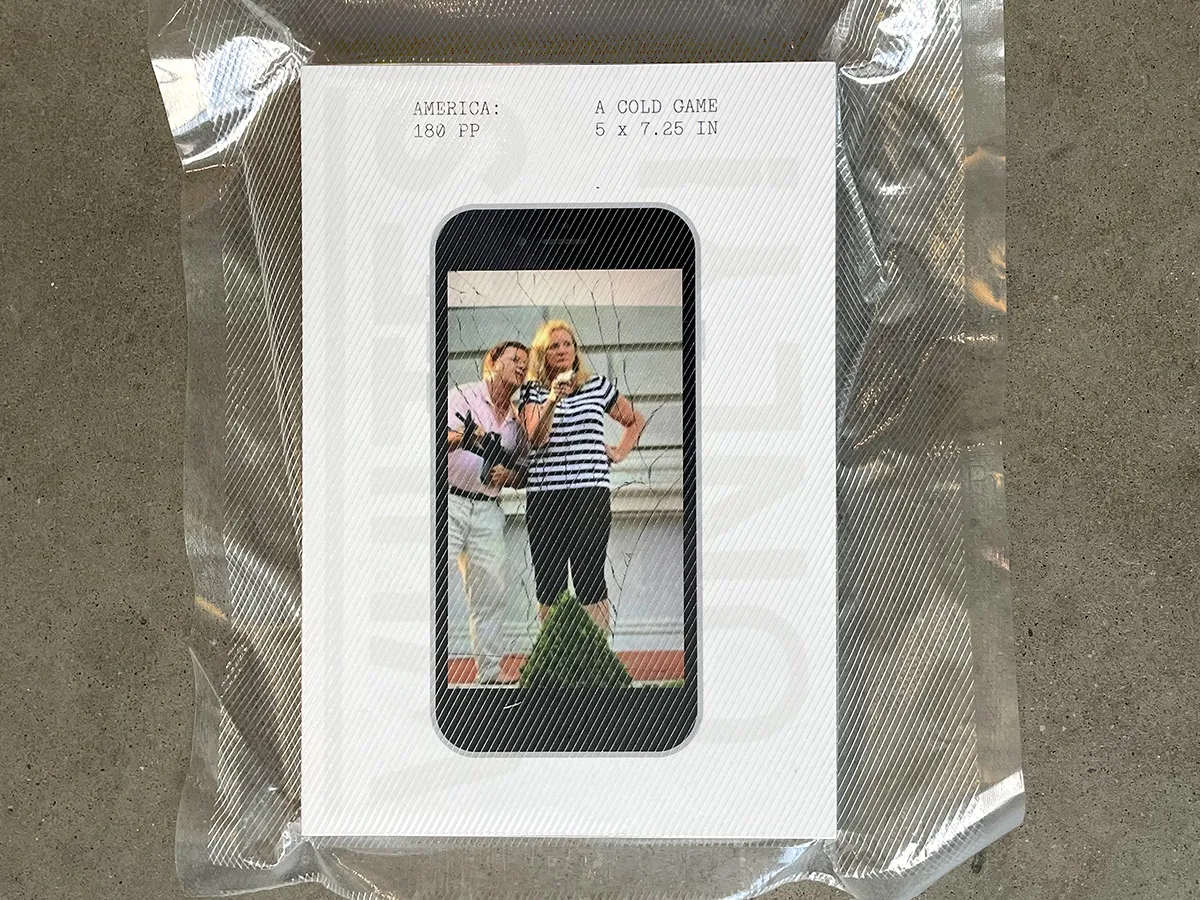
It took me over a year to cut this book loose from its vacuum-sealed packaging. I had flipped through the display copy at the 2024 New York Art Book Fair and after a minute or two looked up from the table shell-shocked and declared “Holy shit this is so hardcore…” Kevin McCoy of WORK/PLAY was standing right there behind the table and he responded “I know, right?” and gave me a solid fist bump. The images in the book are unequivocally terrifying — there’s a reason the book is sealed — but the contrast with Kevin’s warmth and humour in presenting it to me somehow made perfect sense. Once I got it back home, each time I considered opening it, I felt I wasn’t in the right headspace to take it in, until earlier tonight.
It’s stifling hot outside. The first heatwave of the summer here in Montreal is set to once again break historic temperature records. I’m at school and took shelter in my office where I opened the book, and now I’ve moved to the very air-conditioned library, slowly flipping through it again. My head is still in a bit of a haze from the heat outside and the discrepancy with the cool air on my skin mirrors how I’m reading these richly-printed yet low-resolution images, how they blend in and contrast with each other in sequence. Hot and cold images, sharp detail and enveloping atmosphere. What is going on here?
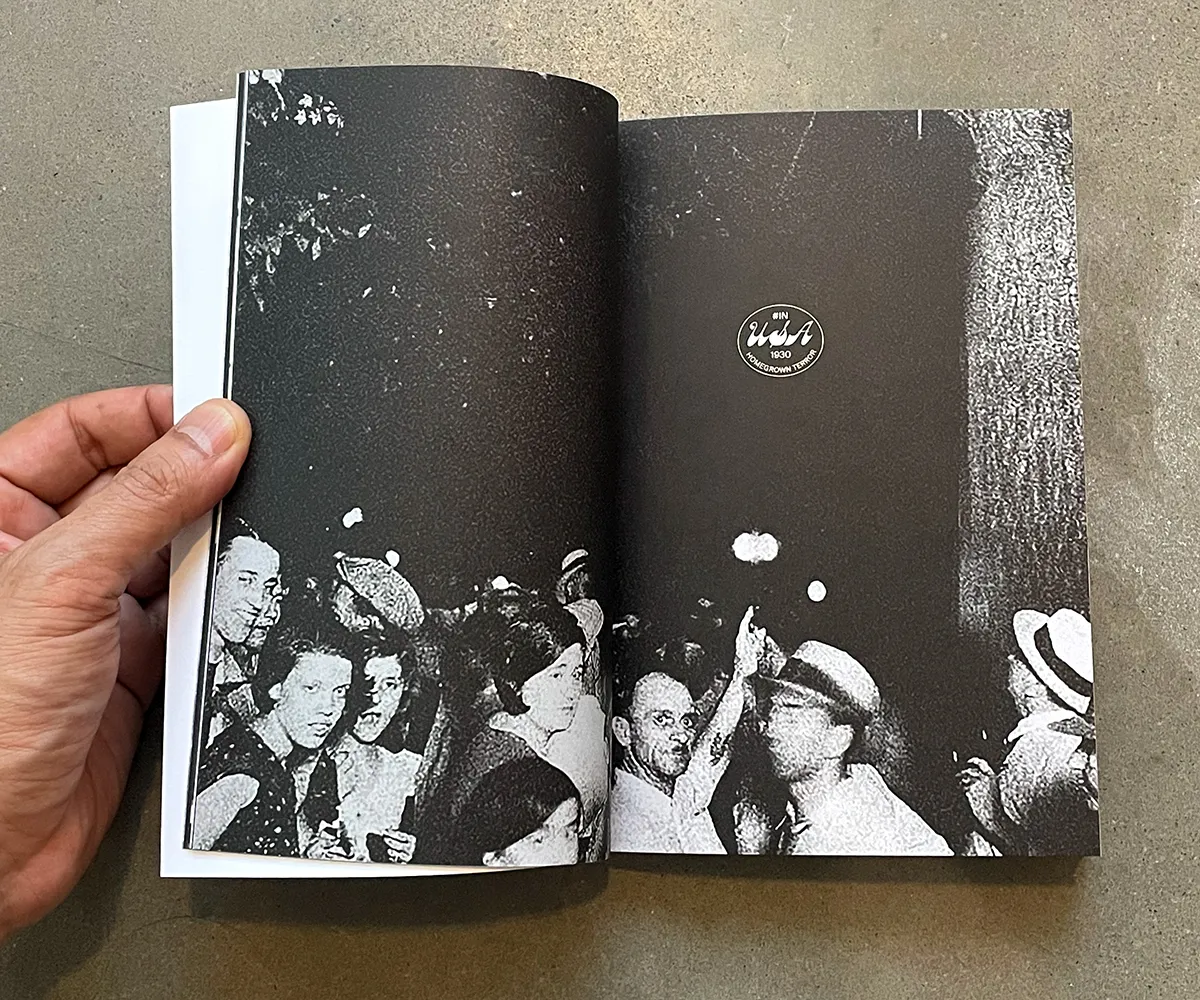
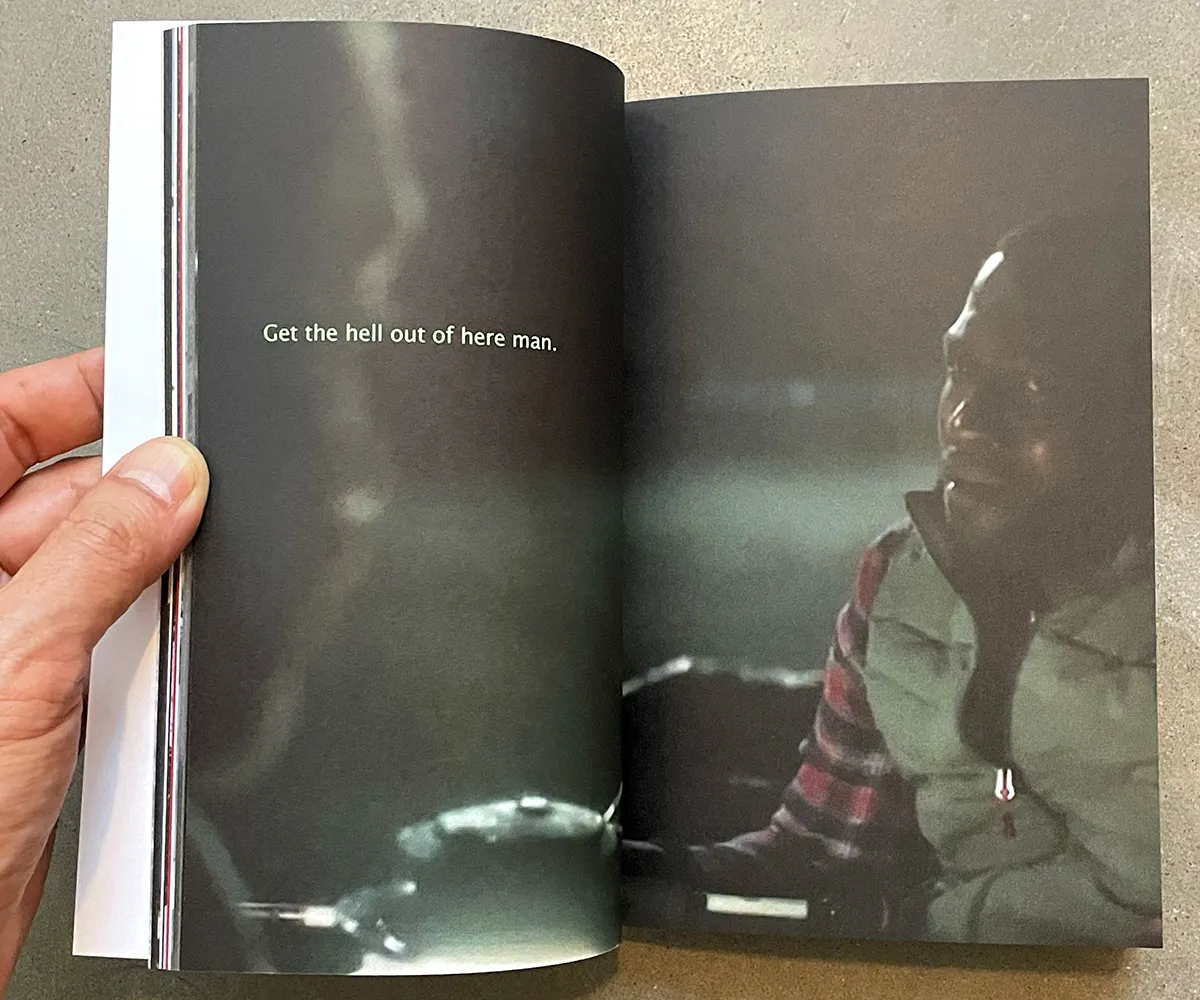
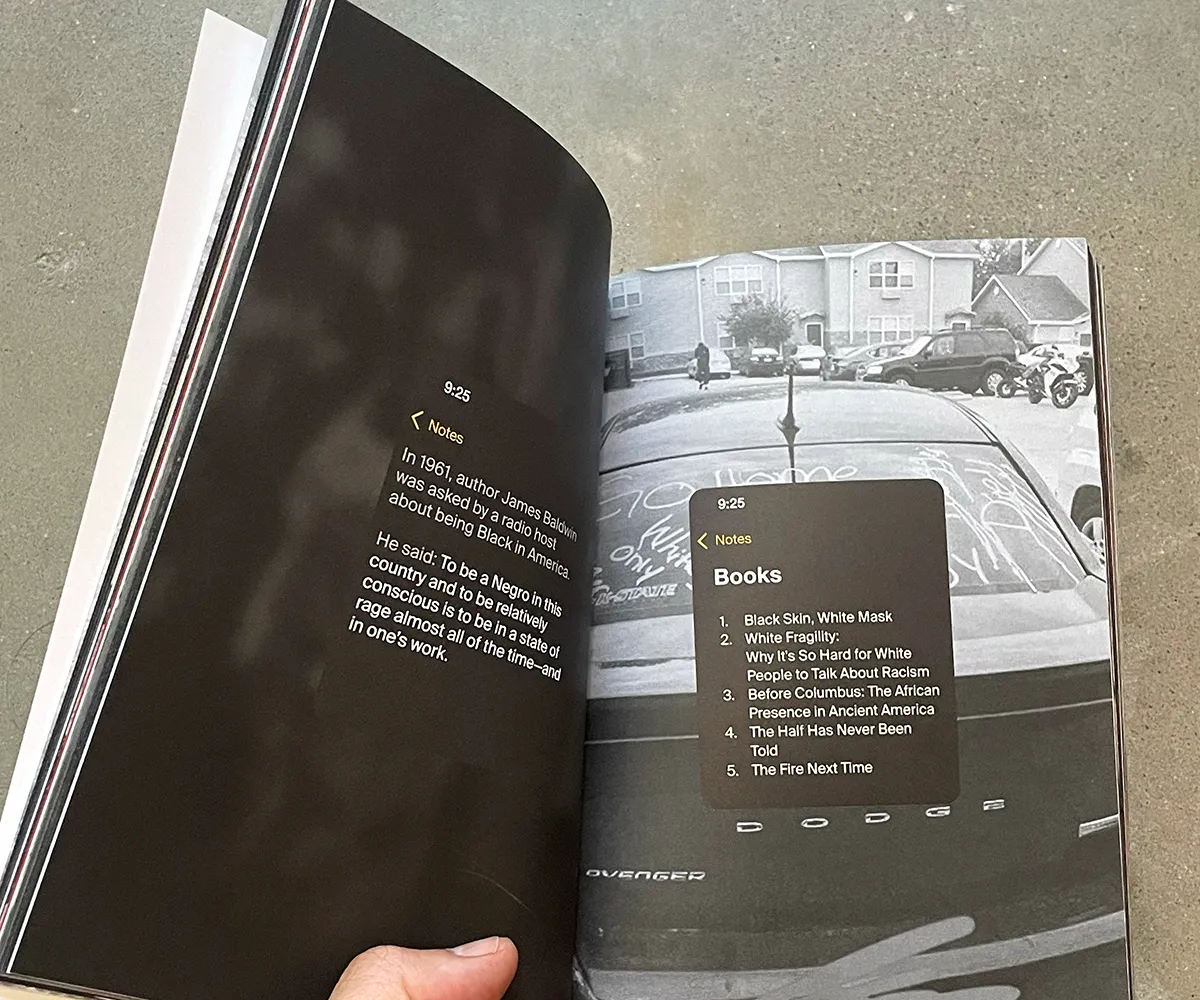
WORK/PLAY’s own description of the book reads:
An examination of racial division and brutality in the bowels of America. This book utilizes a cache of imagery from online cellphone footage, memes, and documentaries, coupled with sequencing, to investigate the fracturing of a nation.
Though I’m not sure it’s the intended reference, an online search of “Cold Game” brings up a term from combinatorial game theory where a cold game is one in which each player can only worsen their position by making the next move. It's an apt metaphor for the way the book works. So, I honestly don’t think there’s much I can or should add by attempting to describe the book’s content. It’s all there in the images.
But perhaps it is important to note that the book is not only an onslaught of white supremacist horrors, there are also notes of humour, pedagogy and historical fact, resilience, resistance, and solidarity. One powerful sequence weaves blurry screen captures of the infamous 1991 police assault of Rodney King with images taken from Kendrick Lamar’s music video for Alright, where the rapper and his Black Hippy Brothers are cruising in a car carried by four white police officers like a chariot. These images in turn refer back to and invert an earlier image from the beginning of the book, a comic illustration of Tintin being carried on a sedan chair by Black Sambo caricatures.
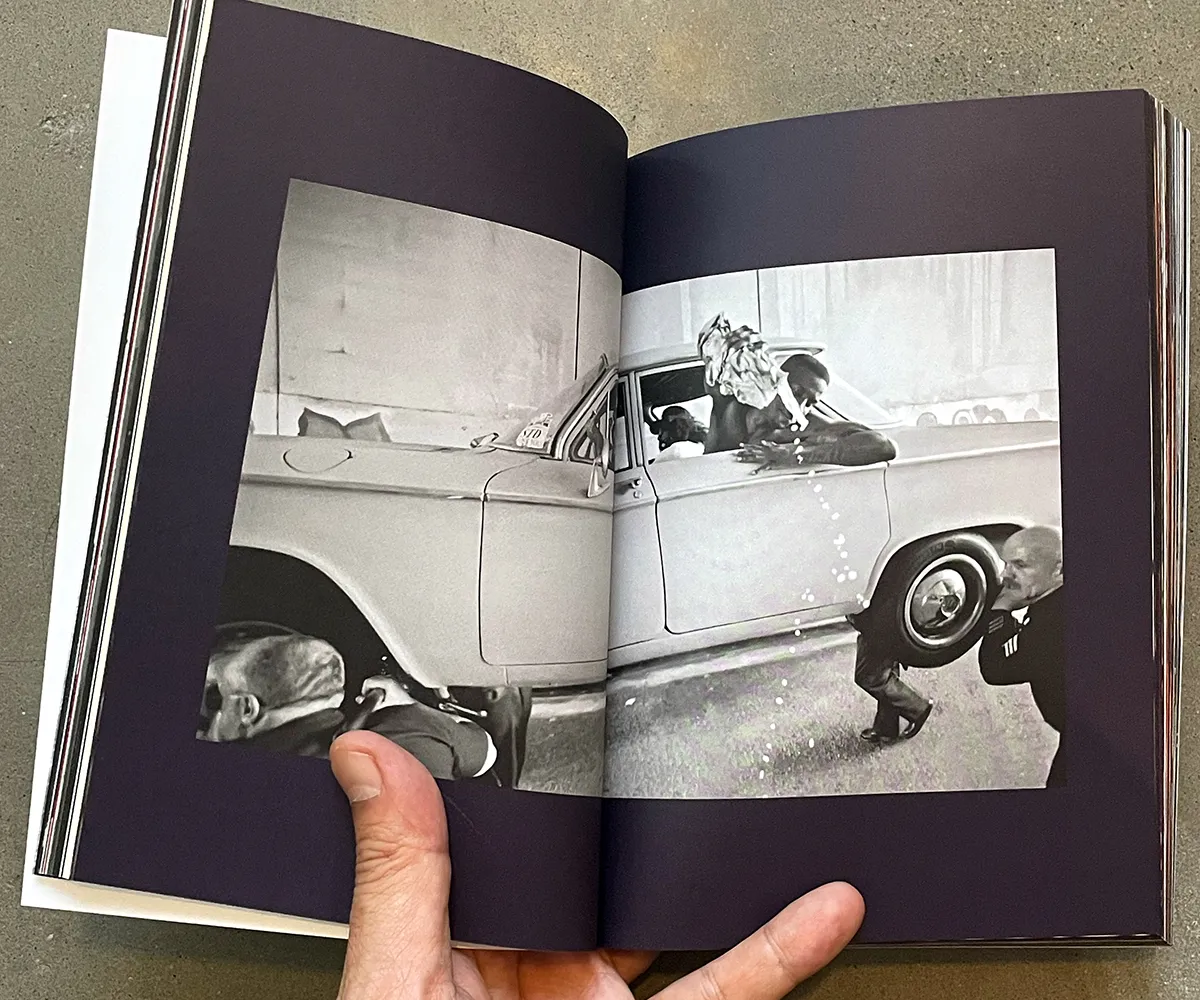
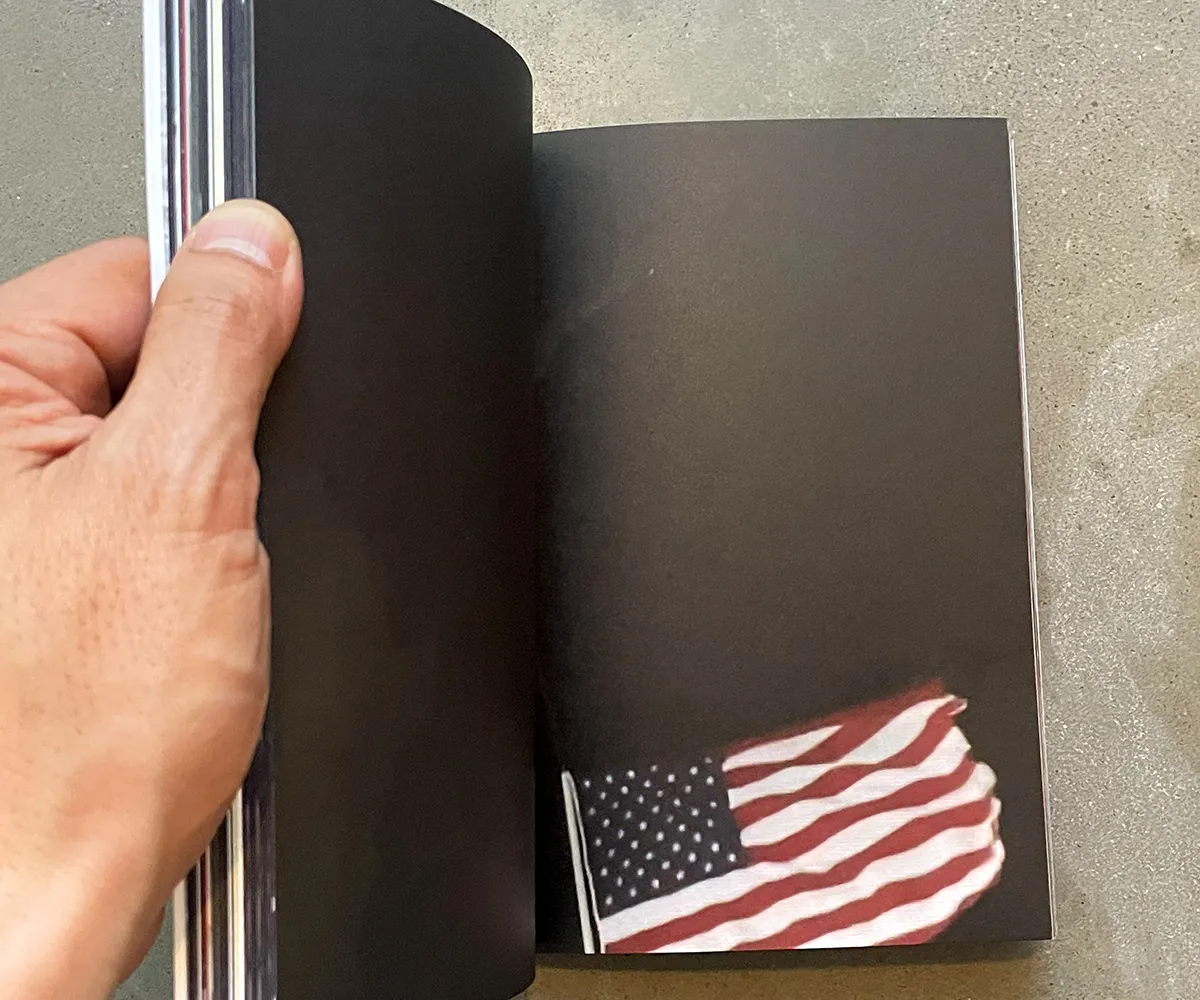
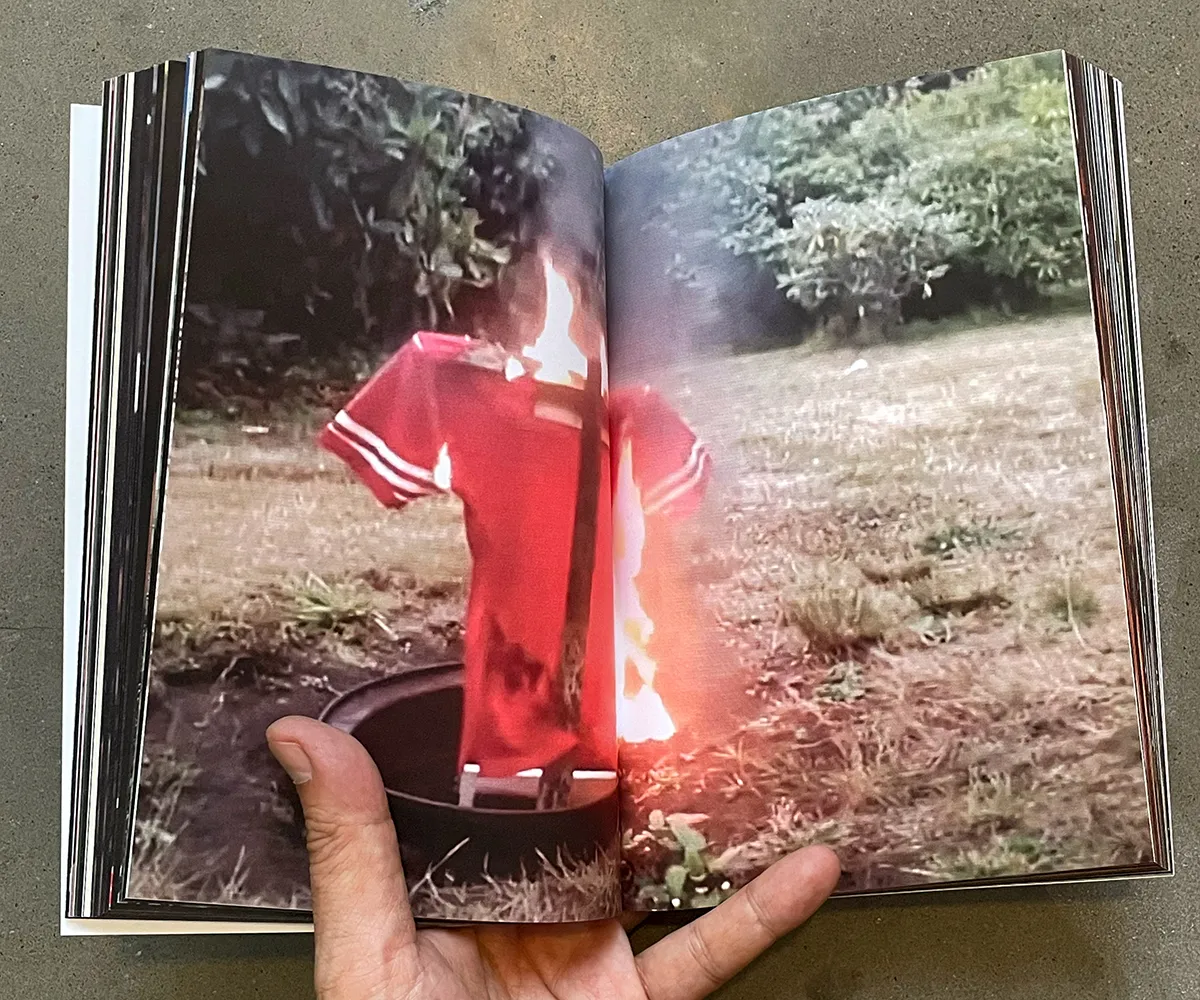
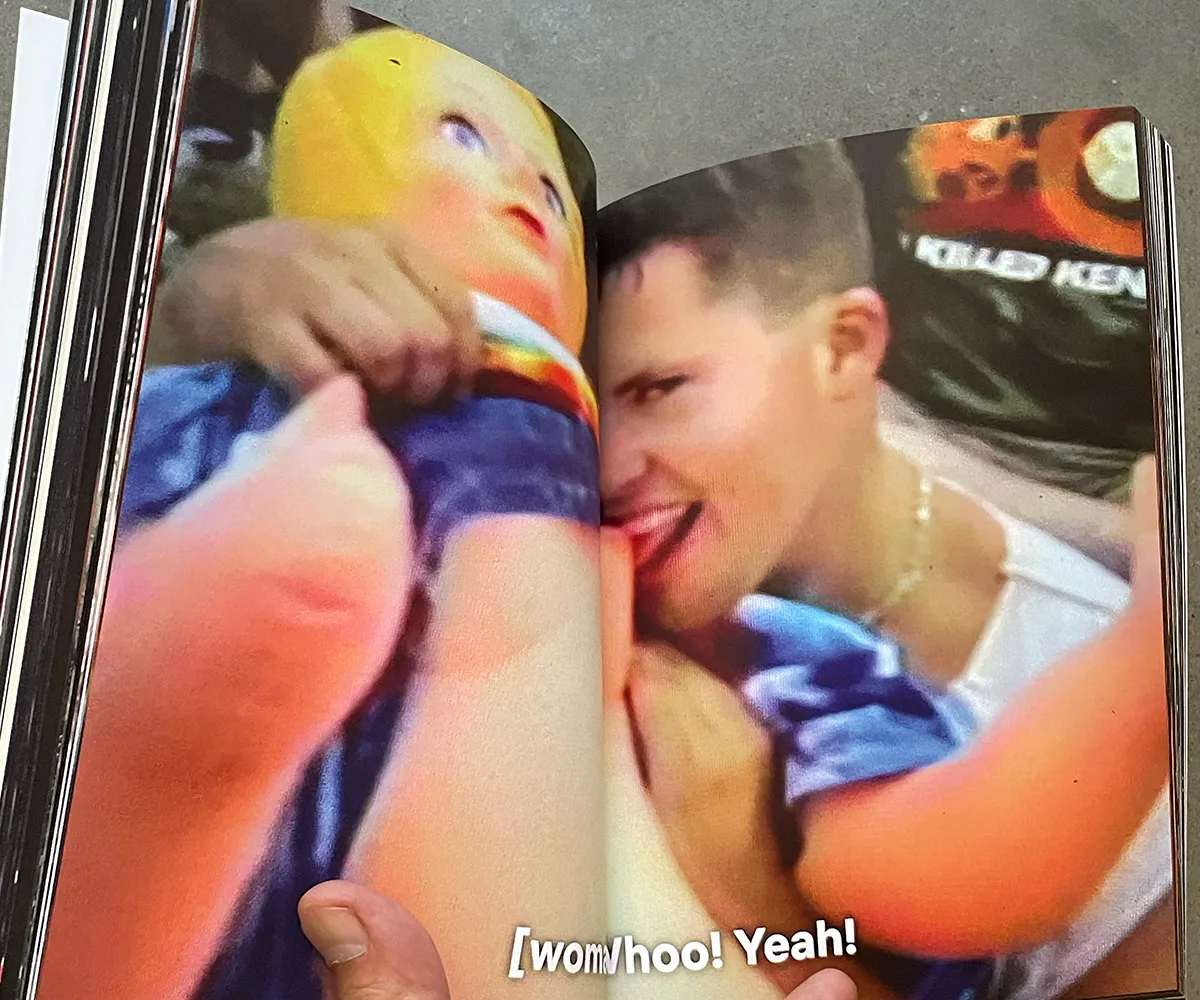
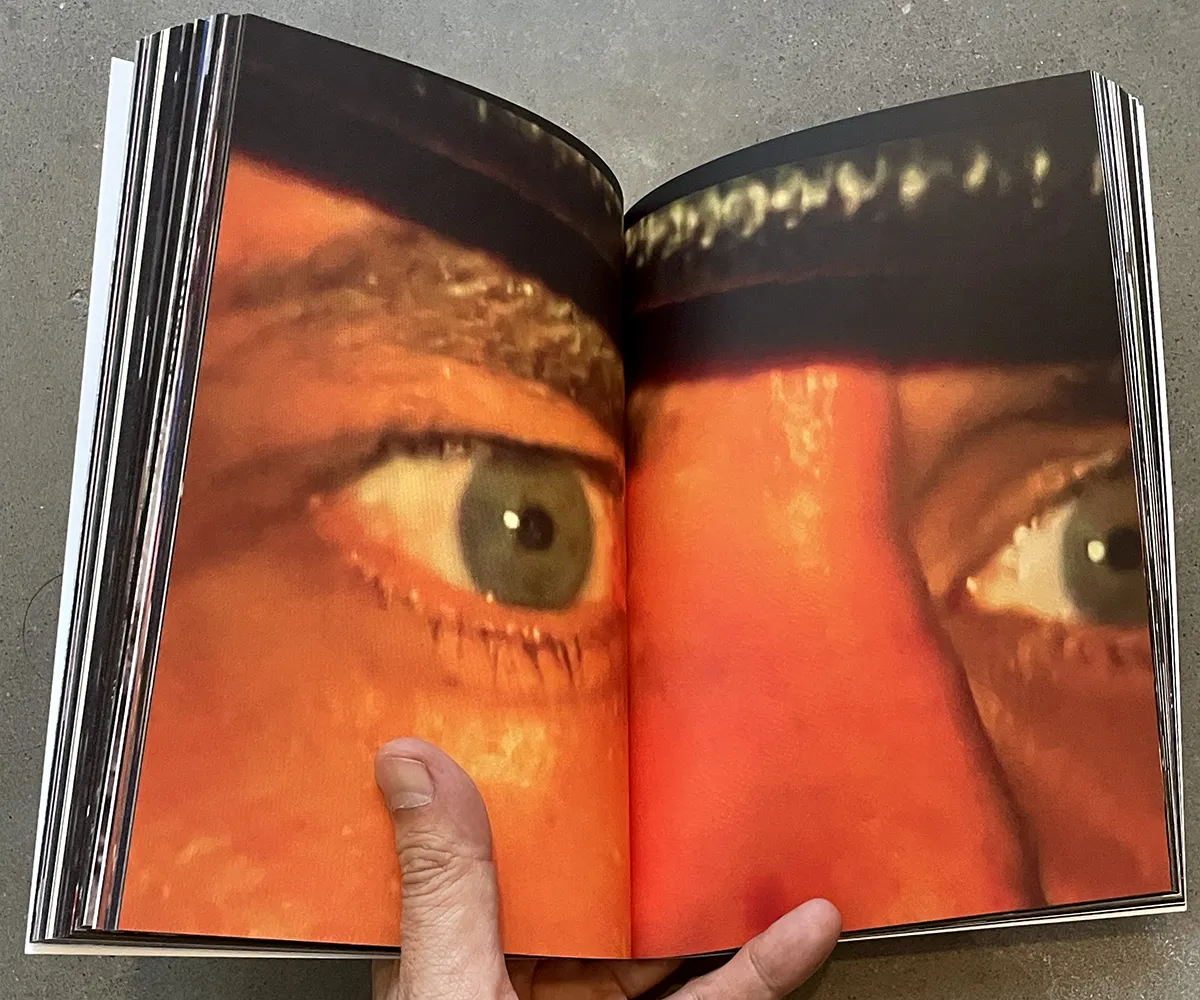
The book’s foreword consists of a lo-fi voice-note accessible via QR code. In the four minute message, we are gifted an intimate moment with the author/designer/speaker as he describes the process of making the book and the ideas behind it. He mentions his partner’s support and encouragement to get the book out, and how on his mentor’s guidance, he conceived of it as an epistemic work. Not as a book on a subject but as a concept where the images and sequencing grapple with how we come to know the world, how Black people in America experience and traverse the world. The skillful restaging of these mediated digital images brings reality and truth to bear, as brutally confronting as it is narratively eloquent.
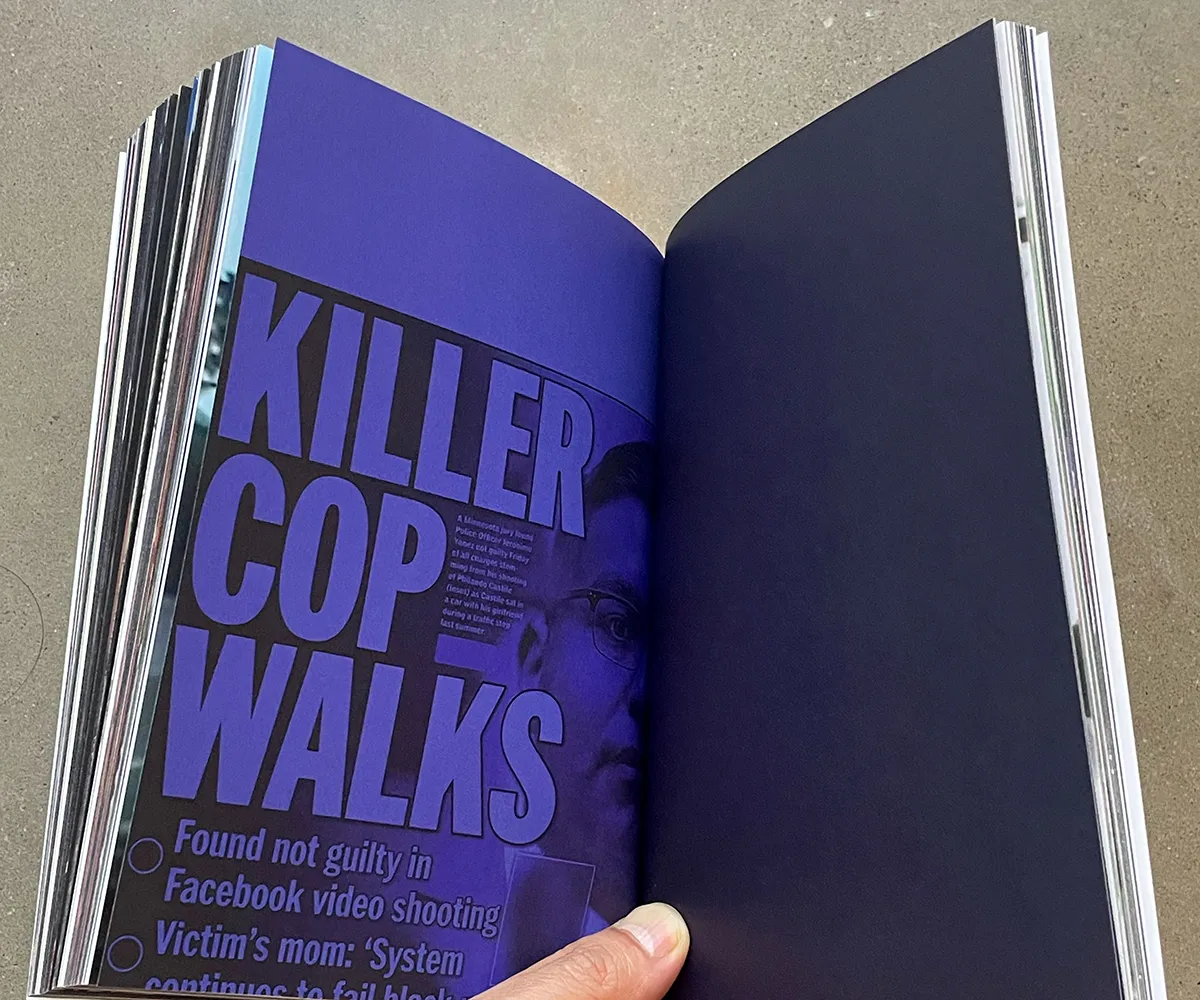
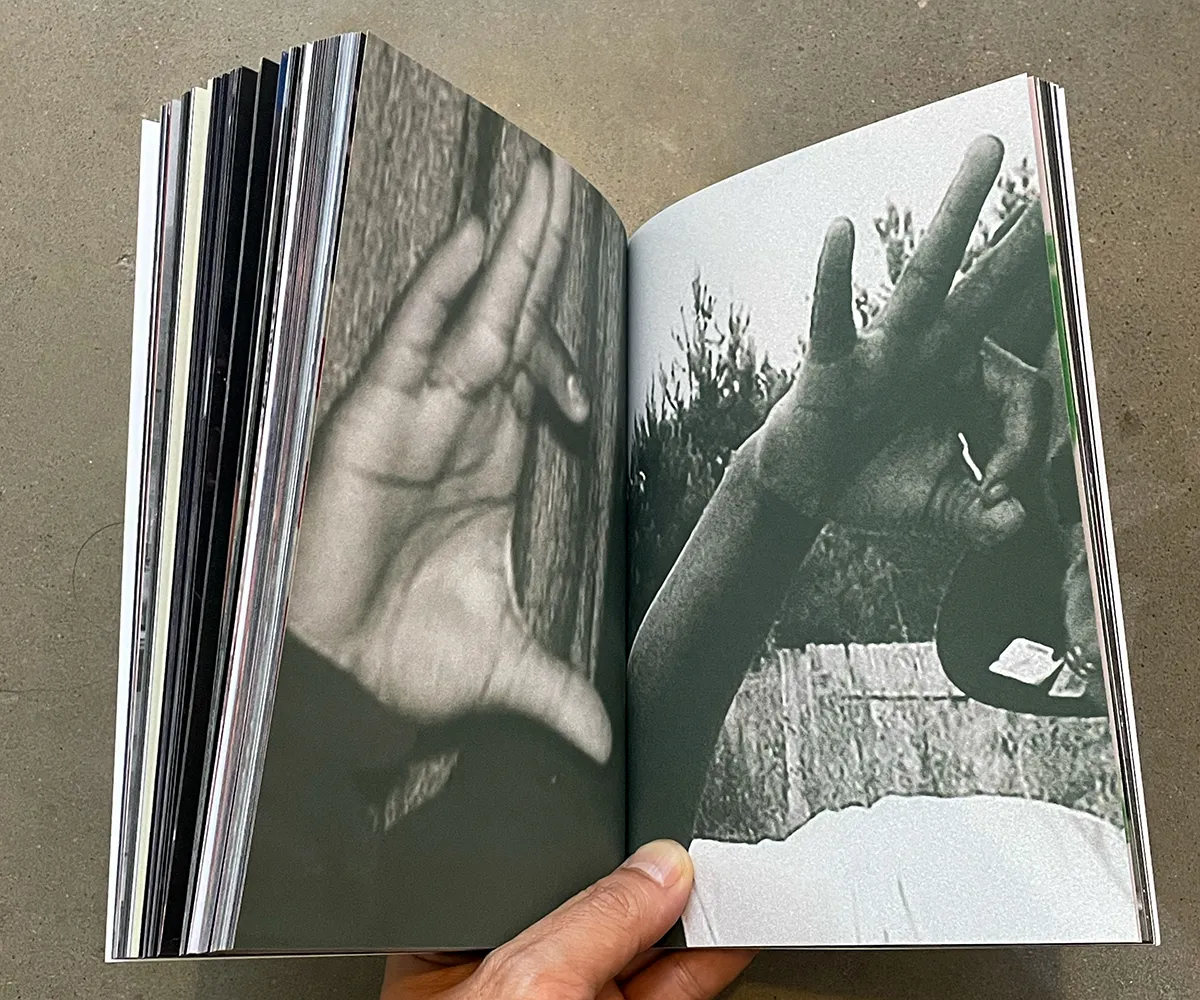
Another salient detail Kevin shares in the audio foreword is that he wanted to make the book hard to turn, that each turn of the page would be a daunting task, an added weight. This is achieved materially through the stiffness of the spine and perfect-binding and the thickness of the paper. In trying to photograph the book I ended up cracking the spine at a spread showing an American flag enveloped in darkness, part of a sequence depicting Colin Kaepernick’s kneeling protest against police brutality. The crack was audibly visceral and almost echoed in my quiet office. After holding on to the sealed book, almost as a treasure, for over a year, I felt a sharp pang in my heart as I damaged it on my first read through. Once the spine broke though, the pages turned more easily... I can't help but read it as a sign. Something in me, in us, needs to break in order for us to truly give and receive. This isn't precious, this is the work. "Share this motherfucka for real..."